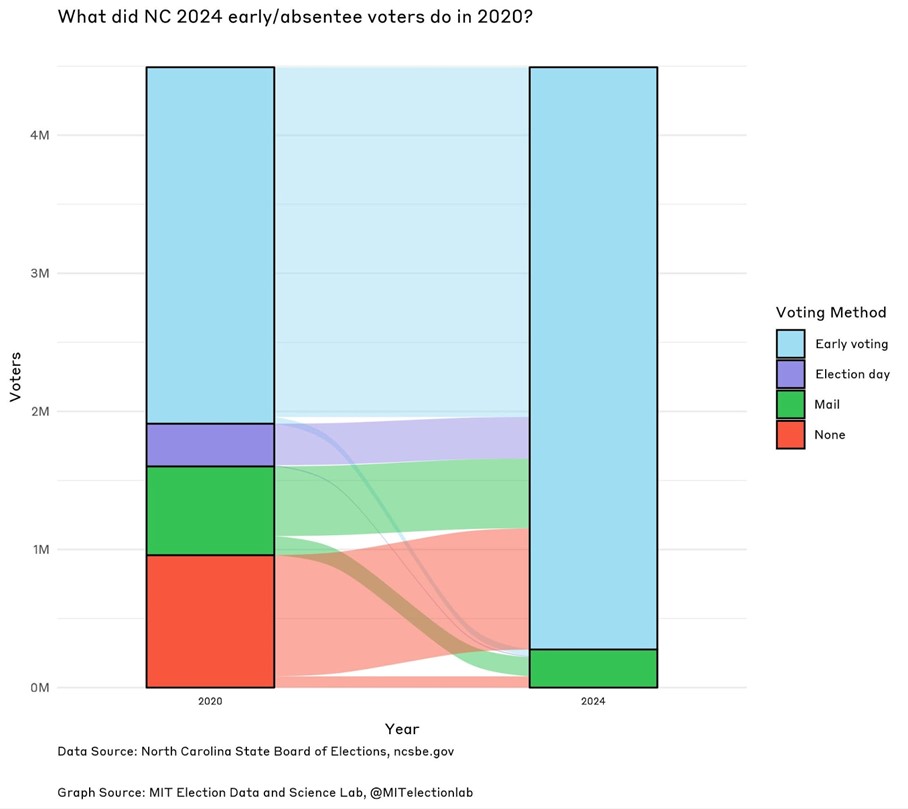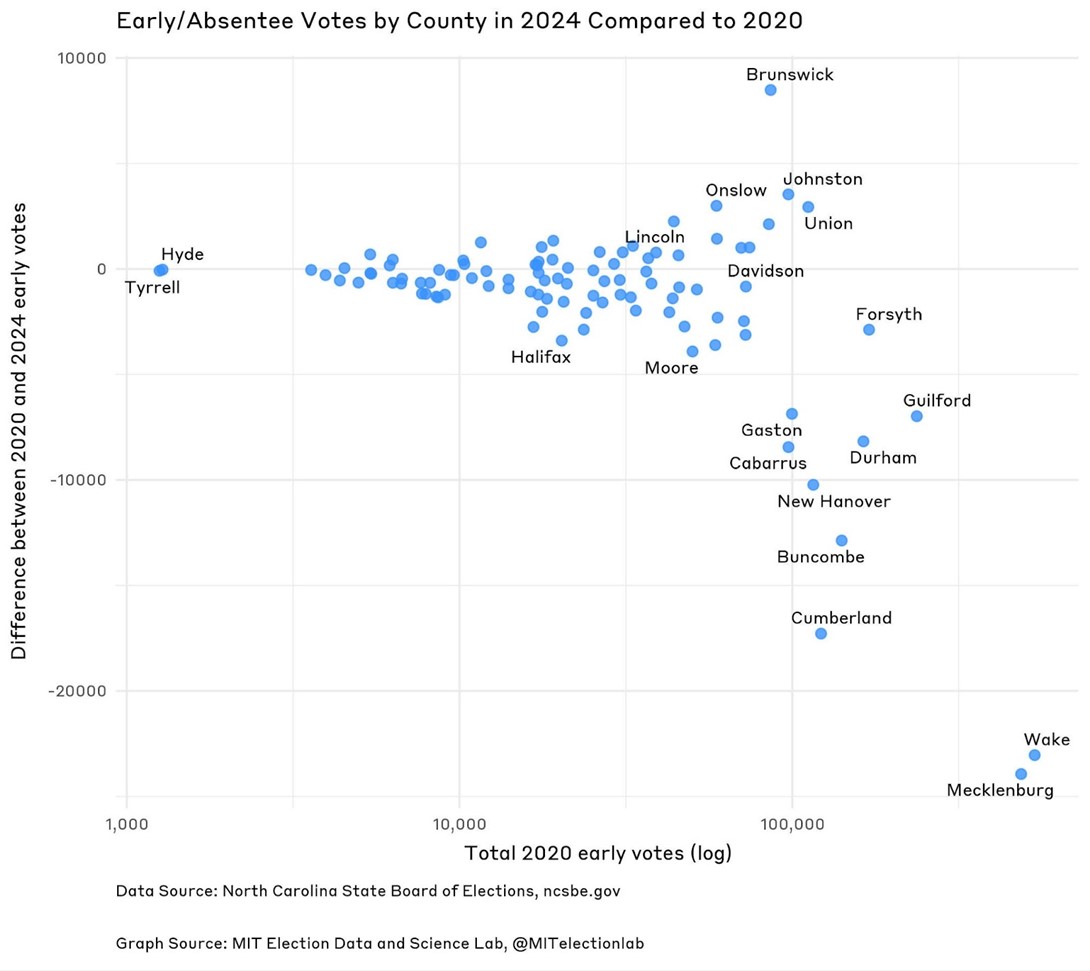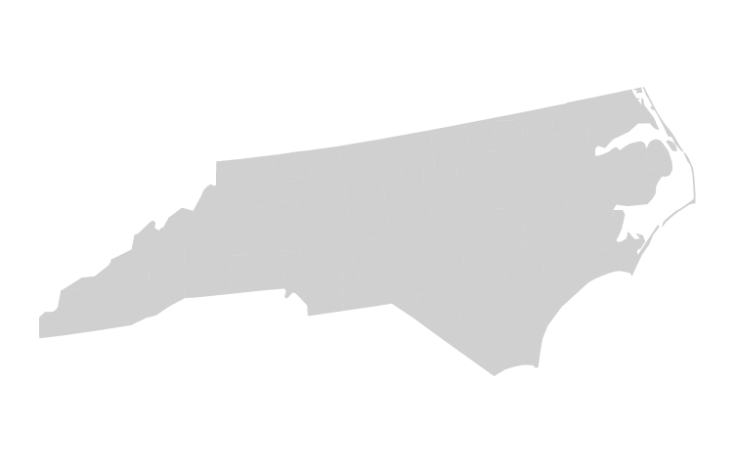Author: Ning Soong
Published: November 5, 2024 (7:05pm)
North Carolina is a crucial swing state in the election, and one that may deliver results relatively quickly. To get a sense of where we are before polls close, let’s look at what votes have already been cast: early and absentee votes.

Looking at this graph, the right-most column shows the distribution of 2024 early voters, who preferred early voting to casting a mail ballot. The left-most column shows what those voters did in the last presidential election. Just over half of this year’s early voters also voted early in the last election. Unsurprisingly, the proportion of mail voting shrank as concerns about COVID-19 faded, with the majority of those voters transitioning to early voting. There was also a small proportion of Election Day voters who moved to early voting. Interestingly, nearly a million voters who early voted in 2024 had no record of voting in 2020. These voters may represent new voters who turned 18 or moved into North Carolina, or they could indicate that this election is activating a higher level of turnout

Looking at the total numbers from early voting in 2024, many of the smaller counties are right around where they were in 2020, although the trend is towards less early and absentee voting. The largest counties in the state dip a little below their 2020 early voting numbers, but due to the pandemic dampening Election Day turnout in favor of early and absentee voting, this is not unexpected. (For perspective, Wake County, home to North Carolina’s capital city of Raleigh, cast 512,232 early votes in 2024 and 535,277 in 2020.) There were also a number of counties in 2024 that surpassed their early vote count from 2020, particularly Brunswick, one of the fastest-growing counties in North Carolina.
